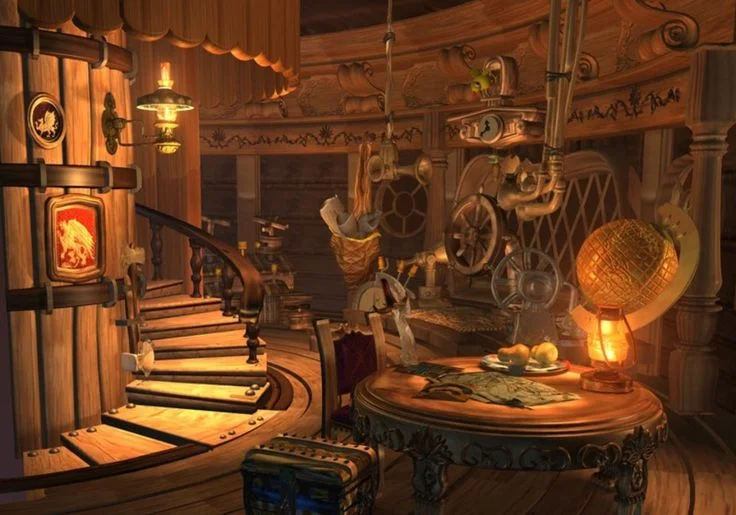Procedurally Produced Poetry: No Man's Sky and the Solitary Experience
/Our forum admin tooktookbird posted this up the other day and it's a great read! Check out the forum post to discuss No Man's Sky with fellow roleplayers!
~ Floyd
With a flourished hype, No Man's Sky dropped for PS4 yesterday, and as of the 12th it will be dropping for those who cling to their PC graphics cards in solemn prayer that it may run this game. Unfortunately, I was of the awareness that mine would be more likely to produce a Chernobyl-esque meltdown rather than generate the flora and fauna of a new, bountiful world to explore. With the media embargo now barely lifted from this game, and a Day 1 patch that addressed many issues brought out in leaked copies, it is essentially an entirely different experience in a number of ways.
However, the purpose of this discourse is not to regurgitate what a twitter hashtag will immediately swamp you with. Rather, it is a look at an interpretation of No Man's Sky. What is the impact of a game that is consistently produced through algorithm? Where does the personal touch of the human and the algorithms of mathematics meet? And, how does this touch a players interaction?
If anything, it is my thought that this game demonstrates some of the foundational principles in the separation of the author and the work. Through diligence and hard work, the effort of a dev team is seen in the environment, the AI, combat, and obvious principles of the game. However, it is the mathematical equations that put the surface beneath our feet. It is, at that point, that the author becomes one degree further and the player interacts with the work within the liminal space of separation. It is, in a manner, quite reflective of the experience that unfolds before you in No Man's Sky: solitary, and between worlds.
The solitary nature of this game is, I argue, one of the primary factors of this game. If anything, it is the factor. In such a case, a game then becomes a constant struggle between the player and what is produced within the virtual environment. In this case, the parameters of No Man's Sky and its environment seemingly hold an even more alien weight to them. In a game that is continuously generated by re-configuring the human elements within the game to procedurally produce the space of your interaction, it may feel cold or repetitive.
When approaching this game, I took on two references after the first hour. One, was Minecraft. Playing in an algorithmic generated environment, it was hard not to draw comparison to Mojang's darling child. While the equations are vastly different, it is still similar in concept. With Minecraft, each damningly jarring stutter was one more chunk of ocean rendered, or some insidious lava flow deep underground. The world produced itself as you made your way across, scouring for resources or a grandiose archway in which to construct your tower of lava-flowing doom. Or, perhaps, just finding as many wildflowers as possible. It was an experience that the player built, destroying and recreating what was generated around them. In contrast, No Man's Sky has very little to build, beyond the not-so-insignificant crafting system. Within this realm, a player destroys more than they create. Gathering resources leaves its scar on your part of the land, and may the Stars help you if the sentinel drones catch you taking a clump of iron one too many times. Unlike Minecraft, where you create and destroy equally, No Man's Sky holds a lesson in futility. You gather, repair, upgrade, explore, and then take off. Only to see the small scope of land you have touched. There is no lava-flowing tower in which you leave your name, no garden you have laid. Merely a plot of world in which you took what you could, before returning to wandering once more.
The second comparison I immediately drew was to Hinterland Studio's flagship game,The Long Dark. In simplicity, it is a single-player, wilderness survival game. It hits precisely at a core concept that makes or breaks a single-player game for me: can I roleplay within this? Now, it is not the kind of roleplay one would encounter on an MMO, or online server. There is no one else to hear your story, your ideas, concepts, fears, and daring encounters. No, there is nothing save yourself and the environment you tread through. It is an exercise in personal imagination.
Within The Long Dark, they have utilized one of the more important qualities of a good single-player survival game: voice acting. If you play, and happen to pick the female wanderer, you will be delighted to note it is Lyris Titanborn from ESO. As your journey across the unforgiving, and bone-bitingly cold land of Northern Canada, you are met with the typical pant from running, the 'oof' from falling', the 'aah' from a wolf finally catching up to you, and the screams thereof. However, what captures me within The Long Dark is the ambient talking to oneself. The "Hmm, this could come in handy" or "It sure is quiet". These aspects may seem small, but it is a factor of immersion that pulls one deeper in their interactive experience with a virtual work. Within No Man's Sky, this is one point that has not been utilized. Rather, it is the typical exhausted breath from sprinting, or the crack from taking a tumble too far up. There is little in the way of engaging, vocally, with the glaring loneliness around you.
That is not to say that the audio is lacking. Jarring sounds, alien humming, synthesized voices, and dynamic music all engage the player. It is merely a pondering of: is it enough to sink into the personal imagination? Thus far, I think so. Captivating and outlandish species, with bizarre plant-life, and worlds that either melt you with radiation or freeze you with blistering cold, all create the sum of a strange, new total that I find thought-provoking and evocative. Within the chaos of this algorithm, amidst the human touches that have been spliced and re-configured through algorithm, it is I experiencing this new world for the first time. As I touch the beacon, it claims I am the first to the find such a place. If that be so, then I am the first to experience the harrowing sublimity of a world untouched amidst countless, even to the developer. How frightful, and chaotic. As one ventures forth to carve out their own interaction with a work that has taken a life of its own.
[...] for him [the author], on the contrary, his hand, detached from any voice, borne by a pure gesture of inscription (and not of expression), traces a field without origin — or which, at least, has no other origin than language itself, that is, the very thing which ceaselessly questions any origin.
- Roland Barthes















![Almighty Allen [Featured Artist]](https://images.squarespace-cdn.com/content/v1/55e49864e4b01d0dc78ba129/1494016363924-BAS6WH35KFUSQOCCO4RR/X8YeVUb.jpg)

![Slain by Syrena [Featured Artist]](https://images.squarespace-cdn.com/content/v1/55e49864e4b01d0dc78ba129/1489542756189-19DYL4NJ7L1HWG9QJBC6/ss10.jpg)